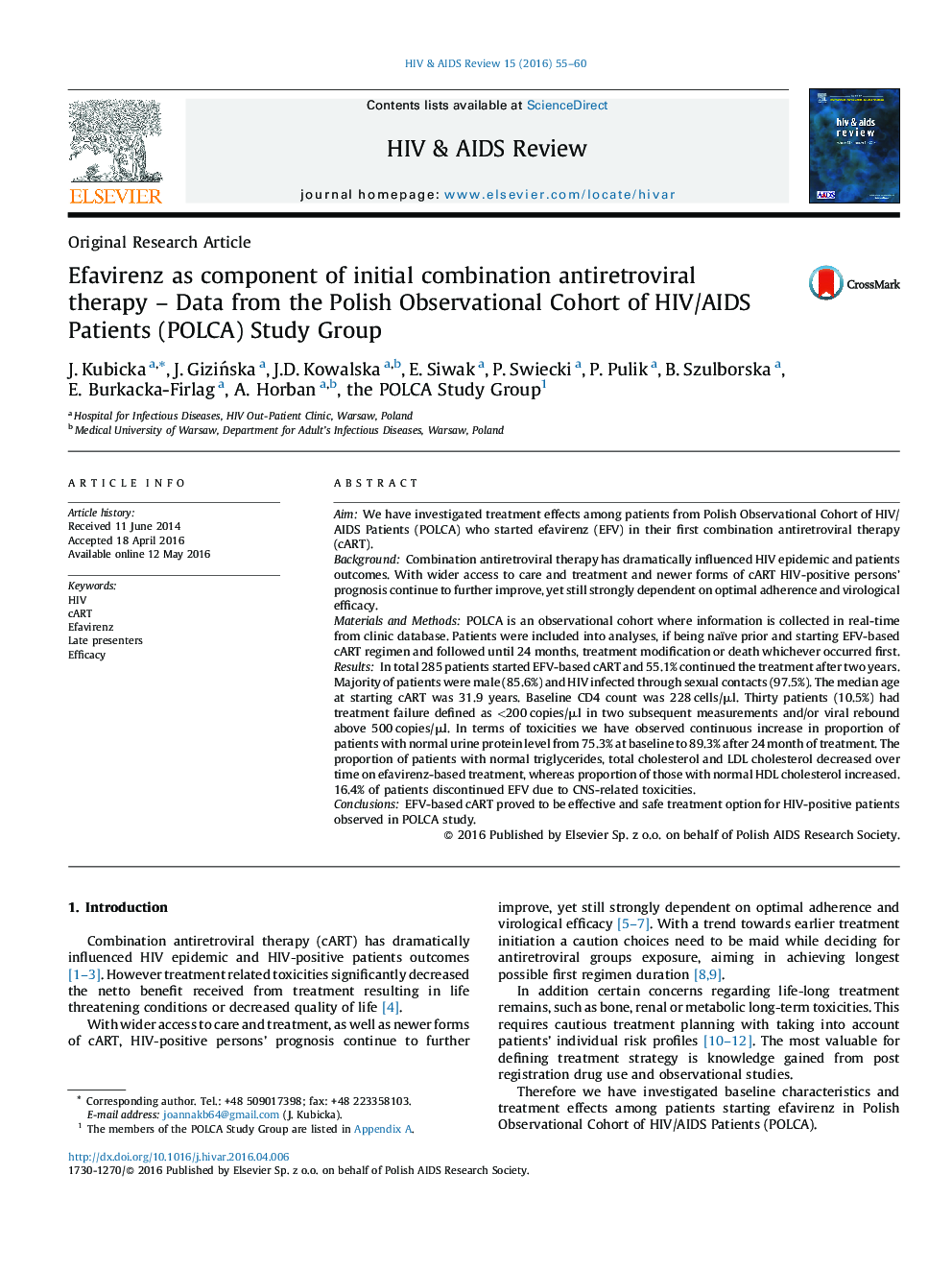| Article ID | Journal | Published Year | Pages | File Type |
|---|---|---|---|---|
| 3332264 | HIV & AIDS Review | 2016 | 6 Pages |
AimWe have investigated treatment effects among patients from Polish Observational Cohort of HIV/AIDS Patients (POLCA) who started efavirenz (EFV) in their first combination antiretroviral therapy (cART).BackgroundCombination antiretroviral therapy has dramatically influenced HIV epidemic and patients outcomes. With wider access to care and treatment and newer forms of cART HIV-positive persons’ prognosis continue to further improve, yet still strongly dependent on optimal adherence and virological efficacy.Materials and MethodsPOLCA is an observational cohort where information is collected in real-time from clinic database. Patients were included into analyses, if being naïve prior and starting EFV-based cART regimen and followed until 24 months, treatment modification or death whichever occurred first.ResultsIn total 285 patients started EFV-based cART and 55.1% continued the treatment after two years. Majority of patients were male (85.6%) and HIV infected through sexual contacts (97.5%). The median age at starting cART was 31.9 years. Baseline CD4 count was 228 cells/μl. Thirty patients (10.5%) had treatment failure defined as <200 copies/μl in two subsequent measurements and/or viral rebound above 500 copies/μl. In terms of toxicities we have observed continuous increase in proportion of patients with normal urine protein level from 75.3% at baseline to 89.3% after 24 month of treatment. The proportion of patients with normal triglycerides, total cholesterol and LDL cholesterol decreased over time on efavirenz-based treatment, whereas proportion of those with normal HDL cholesterol increased. 16.4% of patients discontinued EFV due to CNS-related toxicities.ConclusionsEFV-based cART proved to be effective and safe treatment option for HIV-positive patients observed in POLCA study.
